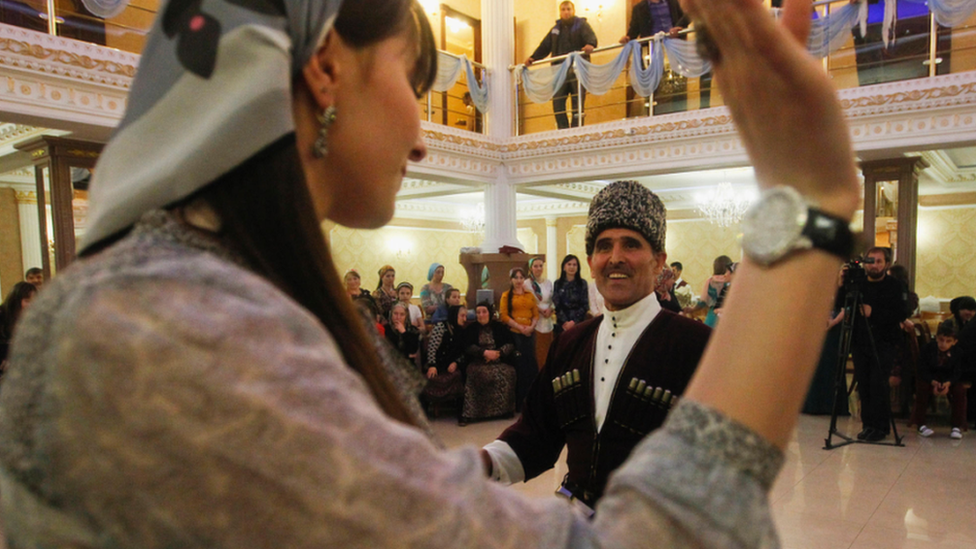Chechen 'gay purge' victim: 'No one knows who will be next'
- Published
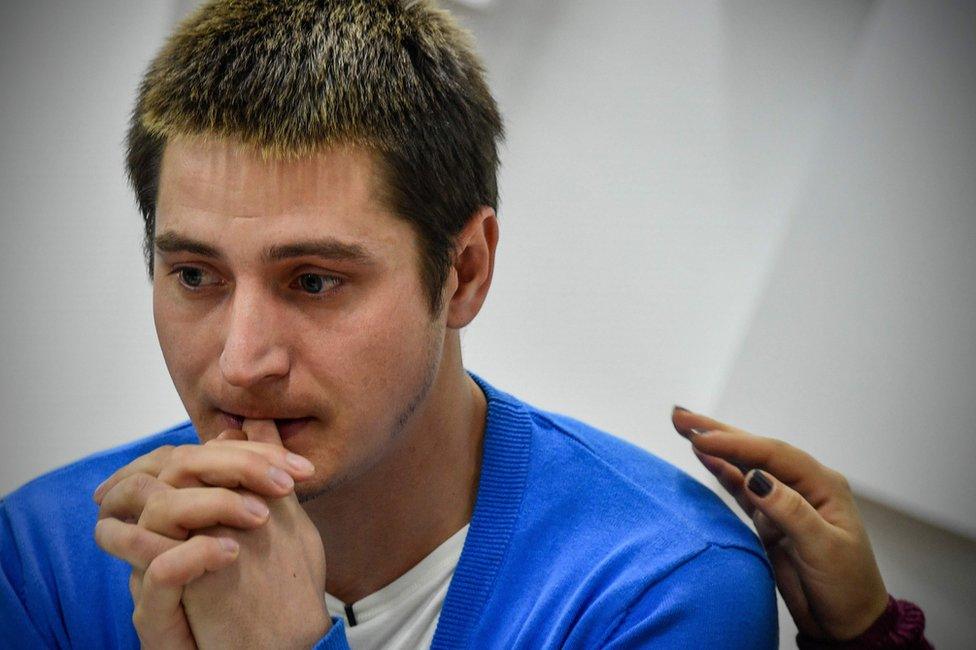
Maxim Lapunov says he was picked up by police and held for 12 days
Six months after reports emerged that gay men were being detained illegally and tortured in the Russian republic of Chechnya, a young man has spoken publicly for the first time about his ordeal.
Maxim Lapunov has described being held for 12 days in a blood-soaked cell, beaten with sticks, threatened and humiliated by police.
But despite reporting what he endured to the authorities, his lawyer says no proper investigation has been conducted.
Mr Lapunov, who is 30 and from Siberia, had been working and living in Chechnya for two years when he alleges he was grabbed and dragged into a car one night in March by two men he didn't know.
At a police facility he was interrogated, forced to name another man and beaten.
"They burst in every 10 or 15 minutes shouting that I was gay and they would kill me," he recalled, speaking at a small gathering in Moscow convened by human rights activists.
"Then they beat me with a stick for a long time: in the legs, ribs, buttocks and back. When I started to fall, they pulled me up and carried on," he said quietly.
"Every day they assured me they would kill me, and told me how."
'Ruslan', a gay man who says he fled: "It's the extermination of gay men"
Twenty-seven men with similar stories have fled the southern Russian republic since Novaya Gazeta newspaper first reported on the violent round-up in spring. They were helped to safety by a group called LBGT-Network, along with 52 relatives and partners.
One of the Chechen men told the BBC at the time that he had been tortured by electric shock and said he believed the aim was to "exterminate" gay men in the republic. Some who fled have since received asylum abroad.
In May, Russian President Vladimir Putin ordered law enforcement agencies to support Russia's human rights ombudswoman in addressing what he called the "rumours" of abuse in Chechnya. His intervention came after senior European politicians voiced concern.
Since then, however, activists say nothing concrete has been done.
Gay Chechen men who have described being detained say they fear that reporting it officially would endanger relatives back home. That is why activists say the case of Maxim Lapunov is so important.
"The authorities' excuse was that no victims had made statements," argues Tanya Lokshina of Human Rights Watch. "Now they have one, but there's no investigation. There is a lack of political will."
Another activist highlighted an apparent lack of control in Moscow over events in Chechnya, which is often described as the private fiefdom of its leader, Ramzan Kadyrov.
"Senior officials including the president say that LBGT people in Russia have no problems," added Igor Kochetkov of LGBT-Network. "To investigate this unprecedented crime… would be to admit that everything they said before was a lie."
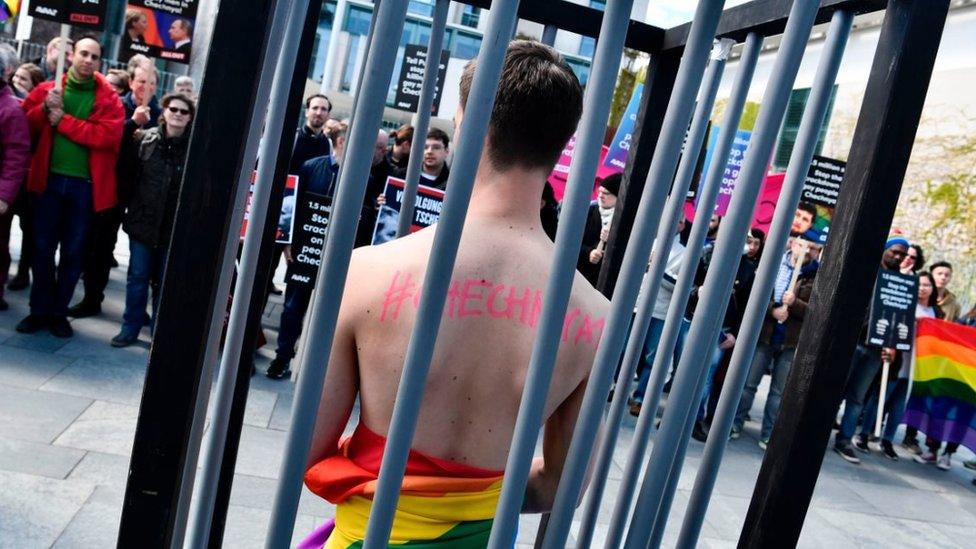
The plight of people in Chechnya has sparked protests worldwide
Asked about the allegations in July, Ramzan Kadyrov dismissed them as "nonsense" invented by "devils". There were, he claimed, no gays in Chechnya.
Maxim Lapunov was eventually released by police after friends posted missing posters around the Chechen capital and his family reported his disappearance. He says his mother had been expecting a call to collect his corpse.
"I could barely crawl when I left," he said, adding that the groans and screams of other detainees still haunt him in nightmares.
He also says he has received threatening messages, pressuring him to retract his statement. But he wants those responsible for what happened, to be punished.
"It should not be like this. We are all people. We all have rights," he said. "If those rights can be violated [in Chechnya], it could happen in any region. And no-one knows whose son or daughter will be next."
- Published16 May 2017
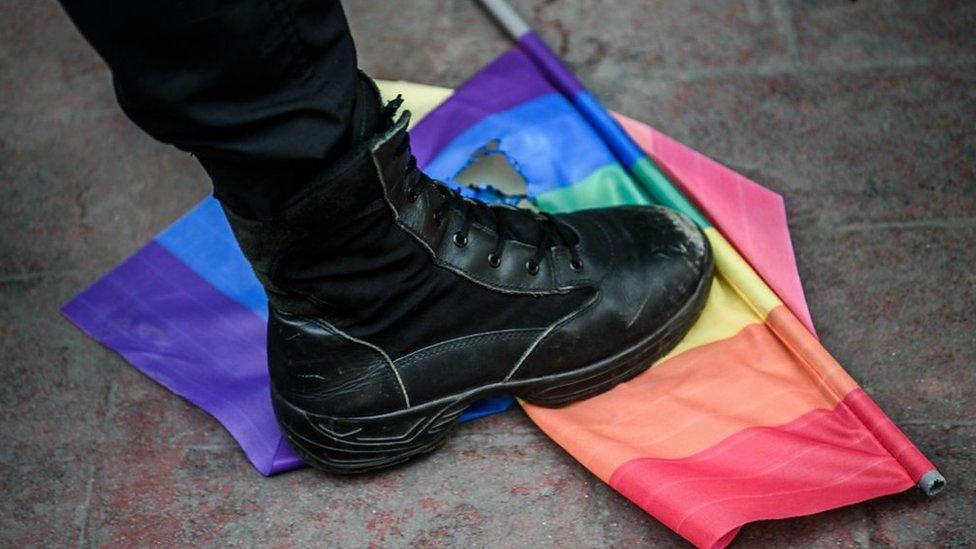
- Published2 May 2017

- Published11 April 2017
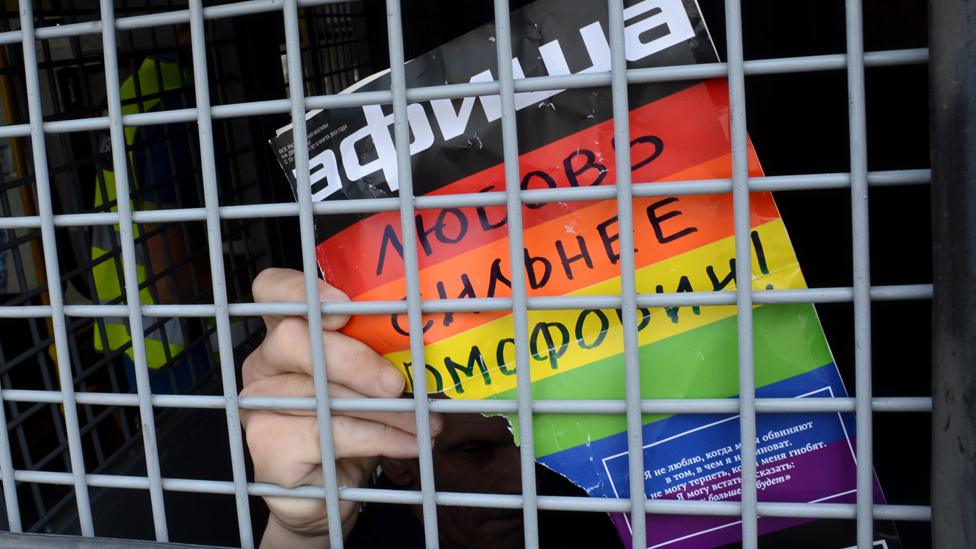
- Published11 May 2017
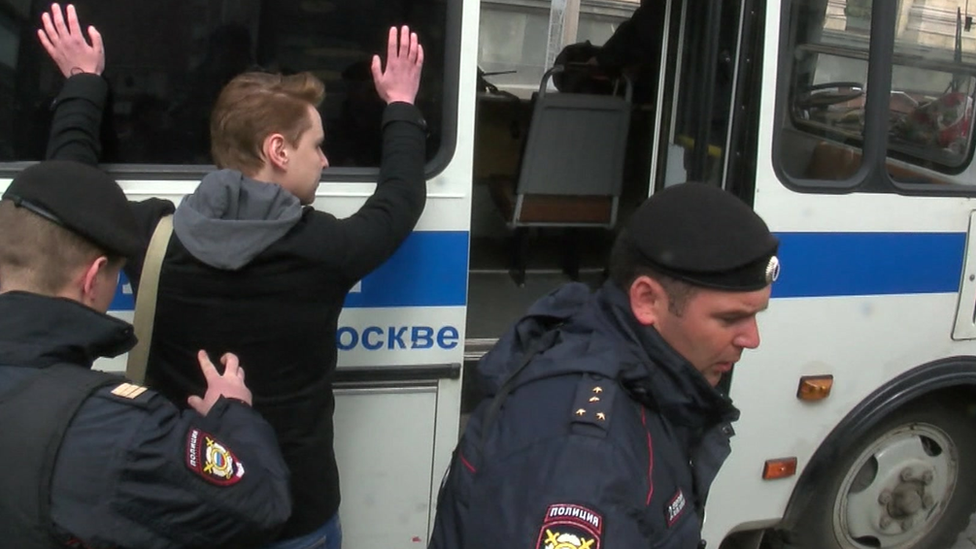
- Published28 October 2016
